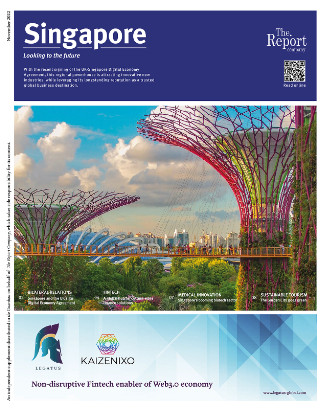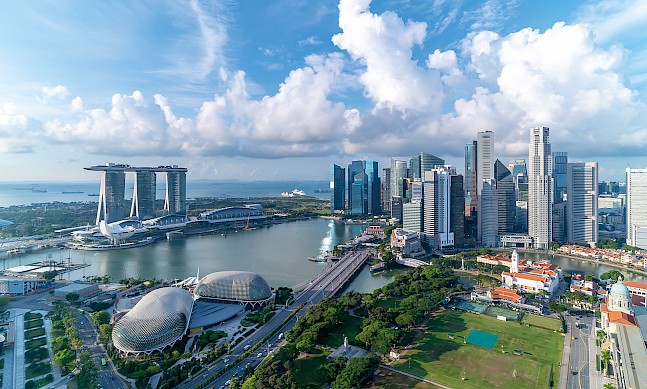In the wake of the UK’s departure from the European Union, efforts to reorient its international trade have led to a series of bilateral agreements with Singapore.
In December 2020, then-International Trade Secretary Liz Truss flew to Singapore to sign a free trade agreement (FTA) between the two nations, a pact she hailed as signifying Britain’s re-emergence as “a major force in global trade.”
Amidst the UK’s post-Brexit ambitions to reposition itself as “Global Britain,” Singapore was a natural choice of early partners with whom to seek a continuity trade agreement, given the deep historical, institutional and cultural ties between the two countries. Moreover, the move was a pragmatic one for both sides: Singapore is Britain’s largest trade and investment partner in Southeast Asia, and Britain is one of Singapore’s top European investment destinations. According to UK government statistics, the value of trade between the countries stood at GBP£17.2Bn in 2022.
“The UK-Singapore Digital Economy Agreement “reflects strong trust between two like-minded and digitally progressive nations””
S. Iswaran Minister-in-charge of Trade Relations
Tweet ThisSince the signing of the FTA, relations between the two nations have only grown stronger. A joint statement issued in March 2021 affirmed their shared commitment “to expand our cooperation for the benefit of our mutual prosperity and security,” setting out pledges to work together on areas including the economy and trade, climate and sustainability, technology, security and more. The statement also made a point to emphasise the “extensive people-to-people links between our two countries,” underscoring that UK-Singapore ties go far beyond just trade and investment.
Nonetheless, the realpolitik underpinning the joint statement was evident in the priority given to mention of the UK’s application to join the Comprehensive and Progressive Agreement for Trans-Pacific Partnership (CPTPP). Made up of 11 nations, CPTPP is one of the world’s largest free-trade areas, membership of which is sought by the UK government in order to open up new export markets and expand its international trade. Singapore’s status as an economic heavyweight in the region made its statement of support for Britain’s accession carry outsize importance.
““Singapore is a gateway to the rest of Southeast Asia, which has a digital economy projected to reach $1 trillion by 2030””
Natalie Black UK Trade Commissioner for Asia Pacific
Tweet ThisIn February 2022, the signing of the landmark Digital Economy Agreement (DEA) marked a further milestone in UK-Singapore relations. Described by British negotiators as “the world’s most innovative trade agreement,” the pact covers digitised trade in goods and services between the countries, while establishing rules around cross-border data flows and protection, digital identities and more. The deal was the first of its type signed by Britain, and the first between an Asian and European nation. In his remarks at the signing ceremony, Singapore’s Minister-in-charge of Trade Relations S. Iswaran said, “The expeditious conclusion of this cutting-edge agreement reflects strong trust between two like-minded and digitally progressive nations.”
The real-world impacts of the DEA are already becoming apparent. In September 2022, Singapore hosted delegates from 24 British businesses, representing cutting-edge sectors including lawtech, cybersecurity and driverless cars, with the visiting companies citing the DEA as supporting their expansion plans in the Asia Pacific region. “Singapore is a gateway to the rest of Southeast Asia, which has a digital economy projected to reach $1 trillion by 2030,” said Natalie Black, Britain’s Trade Commissioner for Asia Pacific. “Our UK-Singapore Digital Economy Agreement will make the most of this opportunity.”
5.6m
Estimated population of Singapore, compared to 67.3m in the UK.
Singapore ranks third in global
population density, with the UK 50th
£17.2Bn
Total value of trade in goods and services between the UK and
Singapore in the four quarters
ending Q1 2022



